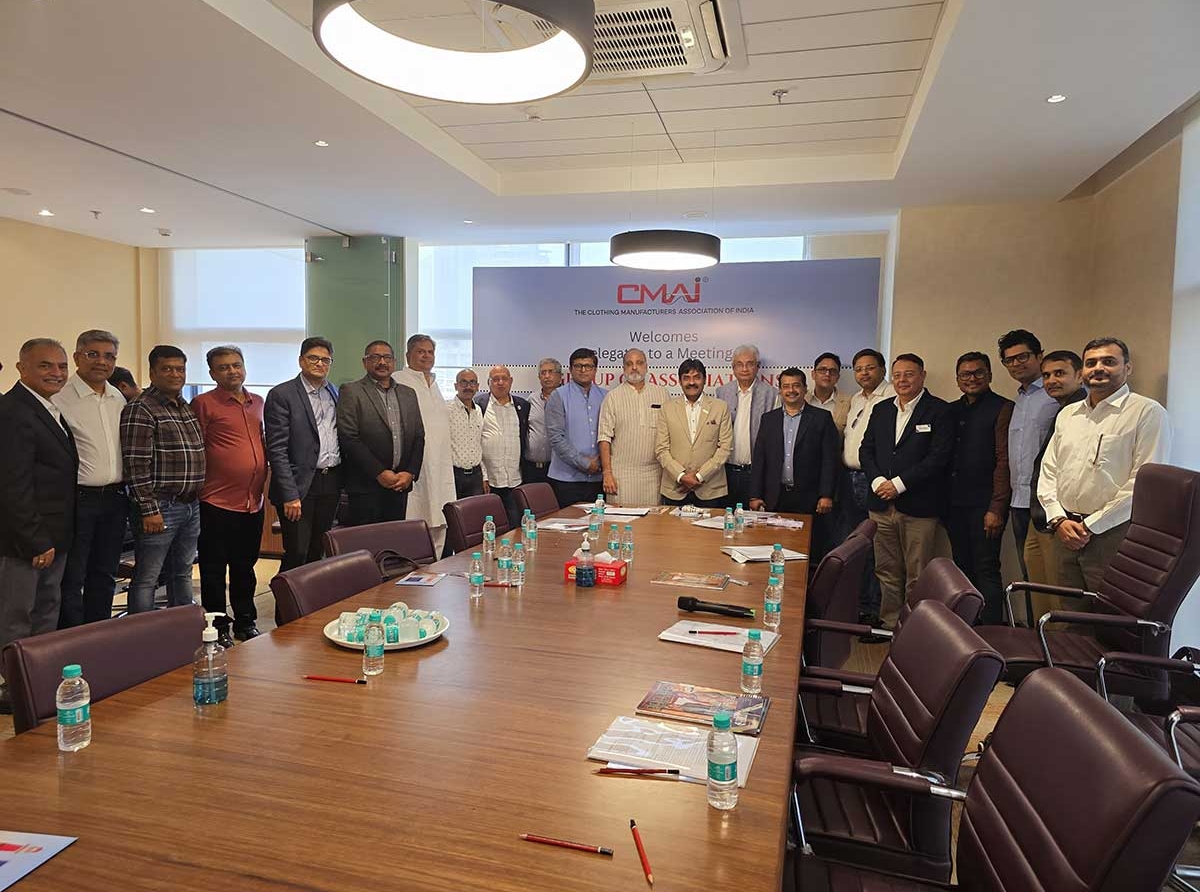CMAI, leading associations unite to address GST and other critical issues in garments

10 January 2025, Mumbai
In an innovative move aimed at strengthening the domestic garment sector, the Clothing Manufacturers Association of India (CMAI) and 14 leading Garment Trade Associations from across the country came together under the initiative ‘One Industry, One Voice.’
In a unified effort, they passed a resolution to submit to the Group of Ministers (GoM), urging them to abandon the proposed revision of GST rates for the garment industry and retain the existing structure of 5 per cent and 12 per cent.
This collaboration marks the first time such a large coalition of industry leaders has joined forces to present a collective representation to the government.
URGENT REQUEST TO RETAIN GST STRUCTURE
The proposed GST rate revision, which has raised serious concerns among garment manufacturers, could lead to significant disruption in the industry. The Group of Associations warned that such a revision would negatively impact manufacturing, pricing, and consumer demand.
It could also drive businesses into informal channels, leading to inflationary pressure on prices and reducing demand, particularly for festive and wedding-related apparel.
The associations have urged the GoM to immediately abandon any plans for GST revisions, emphasizing that this change could harm industry growth, reduce affordability, and threaten employment stability in the sector.
Key recommendations for industry growth
In addition to opposing the GST revision, the Group of Associations presented several key recommendations to secure the long-term growth of the domestic garment industry.
One of the central proposals was the introduction of a tailored Production Linked Incentive (PLI) scheme specifically for the garment sector. Currently, the PLI structure favors the textile industry with its high investment requirements, which do not align with the operational scale of garment manufacturers. A separate scheme would encourage greater participation and better cater to the unique needs of garment manufacturers.
Furthermore, the associations called for policy changes to protect the interests of Micro, Small, and Medium Enterprises (MSMEs) in the sector, especially in insolvency proceedings. The current system often leaves MSMEs with little to no compensation, as recoverable funds are prioritized for larger creditors like banks.
The group recommended that MSMEs be treated as secured creditors, ensuring they receive equitable compensation in the event of corporate insolvency. This move would bolster MSME confidence and contribute to higher trade volumes and improved tax collections.
Policy reforms to support domestic garment sector
The meeting also addressed concerns regarding Section 43B(h) of the Income Tax Act, which has been detrimental to smaller manufacturers. The policy creates a disadvantage for micro and small manufacturers, as large buyers prefer to work with bigger companies. The Group proposed either eliminating this provision or extending the rule to include medium-sized enterprises, ensuring equal opportunities for all. They also recommended a gradual reduction in the payment period for MSMEs, which would ease financial strain and enhance business sustainability.
Additionally, the Group urged the government to introduce an interest subsidy for the domestic garment sector, similar to the support provided to the export sector. Although the domestic industry does not require heavy capital investments, it faces significant challenges due to high interest costs. Targeted assistance for the domestic garment sector would further enhance its potential and support its continued growth.
As CMAI President Santosh Katariya emphasized, this unified approach reflects a commitment to addressing critical concerns, such as GST revisions, supply chain disruptions, rising input costs, and the need for policy reforms to ensure the sector’s sustainable growth.
"While we are seeing a shift in consumer sentiments, it is crucial to recognize that without timely policy interventions, the sector will continue to face challenges," expressed Rahul Mehta, Chief Mentor, CMAI. "The Apparel industry requires policies that nurture its growth and ensure a balanced approach that fosters both immediate stability and long-term sustainability. A supportive policy framework will be vital in unlocking the sector's full potential and translating positive consumer trends into tangible, sustainable growth for the industry.”
This collaborative effort by CMAI and other leading garment associations signifies a crucial step towards advocating for policies that support the growth and sustainability of the domestic garment sector in India.
By addressing key issues like GST rates, MSME protection, and access to financial support, the industry aims to navigate current challenges and unlock its full potential for the future.
























